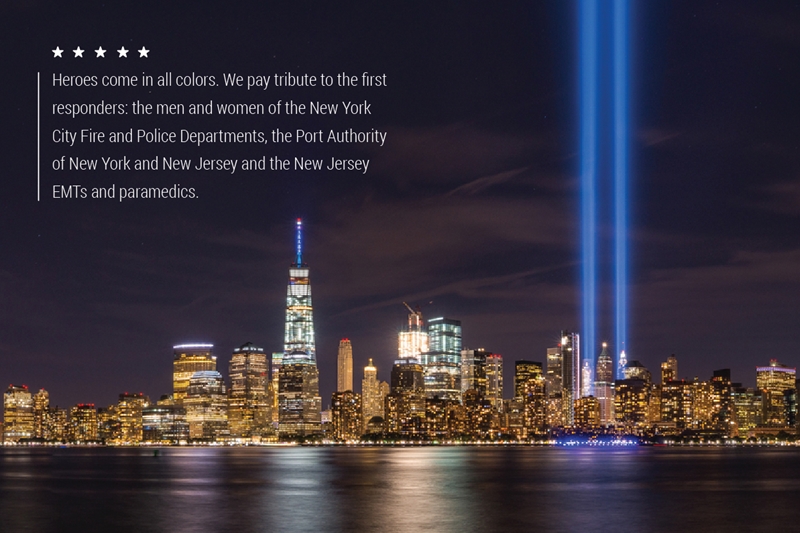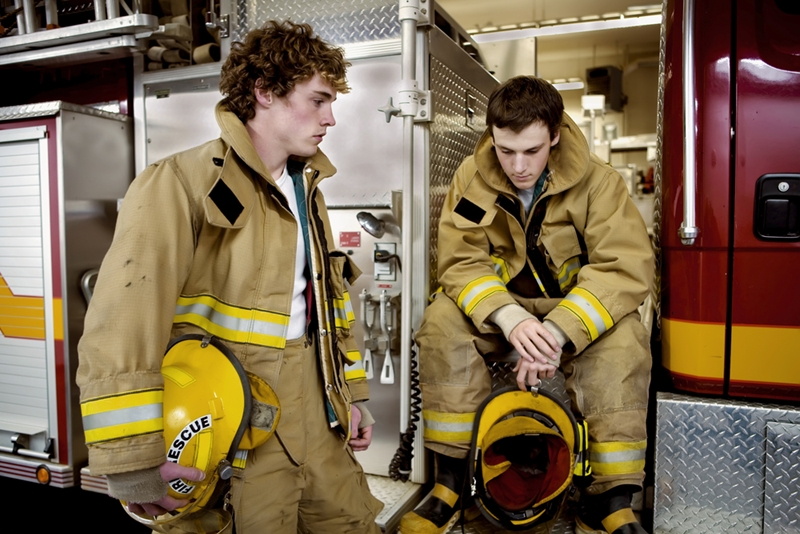Although it has been sixteen years since the tragic September 11 terror attacks, the incident's lasting impacts still ripple through society. We have many to honor and remember.
First responders to the rescue
Many forget who the true heroes of the day were: first responders, such as firefighters, police officers from the New York City Police Department and the Port Authority of New York and New Jersey, EMTs and paramedics.
Immediately after the hijacked planes hit the the Pentagon in Washington, D.C., and the first of the Twin Towers in New York City, the first responders were rushing into the catastrophic scene as everyone else was running away from it. Shortly thereafter the first tower collapsed, but the heroic first responders nonetheless continued to selflessly perform their duties and help those who were trapped or injured.
With the loss of 343 firefighters, the 9/11 attack was the deadliest day in the 152-year history of the New York City Fire Department, according to Fire Engineering. Meanwhile, during the evacuation of the Twin Towers, an additional 23 New York City police officers and 37 Port Authority police officers gave their lives to ensure others could survive.

These first responders were doing everything they could to try and save as many civilians as possible. Thanks to their heroic efforts, hundreds and even thousands of people survived this devastating day and were able to return to their lives.
The short- and long-term aftershocks of 9/11
That evening, as people across the country and world were still trying to process what had happened earlier that day, President George W. Bush delivered a television address wherein he stated, "Terrorist attacks can shake the foundations of our biggest buildings, but they cannot touch the foundation of America. These acts shatter steel, but they cannot dent the steel of American resolve."
While military endeavors continue in the fight against terrorism, first responders continue to live with long-term injuries and other debilitating health problems that stem from these terrorist attacks.
Ray Pfeifer, a member of FDNY Engine 40 and Ladder 35 station in Manhattan, was a first responder on the site of the Twin Towers a few hours after their collapse, according to ABCNews. Pfeifer worked alongside other first responders for months following the attack to continue searching through the still-smoldering pile of ruins in search of remains and survivors.
During this time, many of his peers began developing what they called the "World Trade Center cough." In the following months and years, these coughs led to asthma, lung problems and, ultimately, cancer.
"There's not one person that put their foot on the Trade Center and worked down there that doesn't think in the back of their mind that they're not going to get sick," Pfeifer stated.
"Many lingering issues and unanswered questions remain for 9/11 first responders."
In the time since the attacks, illnesses related to working at Ground Zero have taken the lives of an additional 127 firefighters, and thousands more have medical conditions and health problems associated with exposure at Ground Zero.
Although Congress has taken steps to help, including passing the Zadroga 9/11 Health and Compensation Act of 2010, there are still many lingering issues and unanswered questions for first responders and military personnel. Mental health concerns, such as post-traumatic stress disorder and depression, and physical ailments, such as chronic sinus inflammation and lung disease, remain rampant problems for first responders who were at ground zero.
As we take a solemn moment to reflect on the events of this tragic day, we must not forget those still suffering from the long-term effects of their heroic actions.

